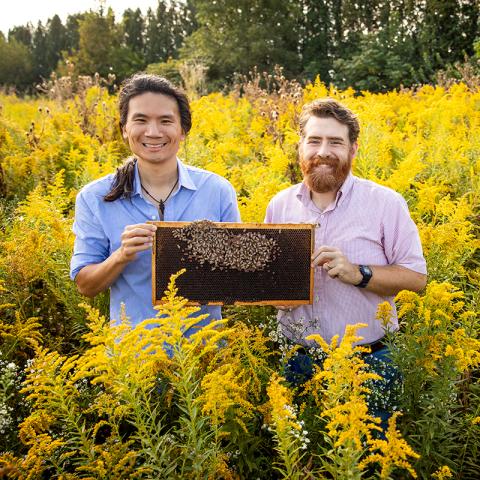
CHAMPAIGN, Ill. — In a new study, researchers at the University of Illinois Urbana-Champaign tackled a thorny problem: How do nutritional stress, viral infections and exposure to pesticides together influence honey bee survival? By looking at all three stressors together, the scientists found that good nutrition enhances honey bee resilience against the other threats.
Their findings are detailed in the journal Science of the Total Environment.
“Multiple stressors are often bad for survival,” said graduate student Edward Hsieh, who led the research with U. of I. entomology professor Adam Dolezal. “However, it is always context-dependent, and you have to be aware of all these factors when you’re trying to make broad statements about how interactive effects affect honey bees.”
Most studies focus on only one or two factors at a time, Hsieh said. They will explore the interplay of poor nutrition and pesticide exposures, for example, or pesticides and viral infections. But no previous studies have looked at how all three factors contribute to honey bee declines — probably because doing so is quite challenging.
Even understanding how bees respond to all the agricultural chemicals they encounter is a complicated task, Dolezal said.
“Some insecticides will work better against some insects than others, but they tend to be more lethal than fungicides or herbicides,” he said. “Some fungicides, however, are known to make insecticides more toxic to insects.”
For the new study, the team looked at pollen collected by honey bees visiting small patches of restored prairie bordering agricultural fields in Iowa. The researchers used the maximum insecticide and fungicide levels detected in bee-collected pollen grains as their guide to likely chemical exposures in the wild.